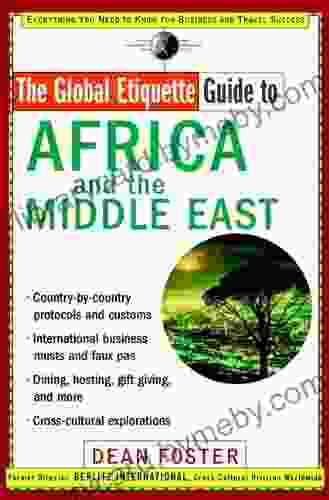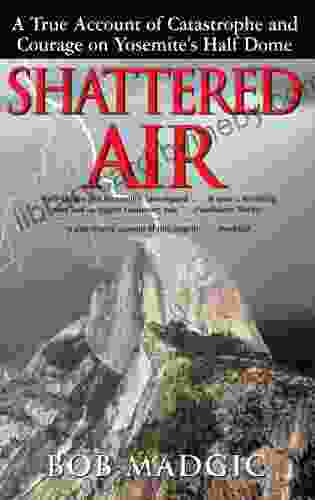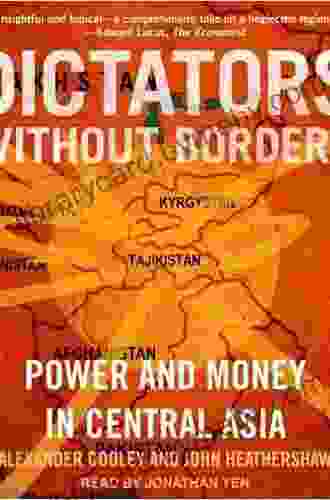Unveiling the Nexus of Power and Money in Central Asia: An Immersive Journey into Elite Networks and Economic Dominance


Central Asia, a vast and enigmatic region nestled between the Caspian Sea and the Himalayas, has long been shrouded in mystery and intrigue. Its intricate history, diverse cultures, and strategic location have shaped the destinies of countless civilizations. In recent decades, Central Asia has emerged from the shadows, becoming an increasingly important player in global affairs. At the heart of this region's transformation lies a complex nexus of power and money that has profoundly shaped its political, economic, and social landscapes.
4.3 out of 5
| Language | : | English |
| File size | : | 3025 KB |
| Text-to-Speech | : | Enabled |
| Screen Reader | : | Supported |
| Enhanced typesetting | : | Enabled |
| Word Wise | : | Enabled |
| Print length | : | 349 pages |
Power Brokers and Elite Networks
Central Asia is home to a small but influential group of political and economic elites who wield immense power. These individuals, often referred to as "clans" or "oligarchs," have accumulated vast fortunes through their control over key industries such as energy, mining, and finance. Their wealth and connections have given them enormous influence over government decision-making and the allocation of resources.
One of the most prominent elite networks in Central Asia is the Nazarbayev family in Kazakhstan. Former President Nursultan Nazarbayev, who ruled the country for nearly 30 years, established an intricate web of family businesses and political alliances that gave his family a stranglehold on the economy. Similarly, in Uzbekistan, the Karimov family, led by the late President Islam Karimov, controlled much of the country's wealth and used its power to suppress political opposition.
These elite networks have often used their influence to enrich themselves and their cronies, leading to high levels of corruption and inequality throughout the region. They have also been known to stifle political dissent and suppress free media, further consolidating their grip on power.
Economic Dominance and Resource Extraction
Central Asia is endowed with vast natural resources, including oil, gas, and minerals. The exploitation of these resources has been a major driver of economic growth in the region, but it has also led to significant environmental degradation and social inequality.
Kazakhstan and Turkmenistan are major oil and gas producers, while Uzbekistan is a leading producer of cotton. These countries have relied heavily on resource extraction to fuel their economies, but they have also faced challenges in diversifying their economies and reducing their dependence on volatile commodity prices.
The control over natural resources has often been a source of conflict and tension between different elite groups within Central Asia. The distribution of oil and gas revenues, for example, has been a source of dispute between Kazakhstan and Turkmenistan, as well as withinKazakhstan itself. These conflicts have sometimes led to political instability and even violence.
The Rise of China and its Investment
In recent years, China has emerged as a major economic and political force in Central Asia. China's massive Belt and Road Initiative (BRI) has led to increased investment in the region, particularly in infrastructure, energy, and transportation projects.
China's investment has had a significant impact on the economic development of Central Asia, but it has also raised concerns about China's growing influence in the region. Some observers fear that China's economic dominance could lead to political and military encroachments, undermining the sovereignty of Central Asian states.
The Future of Power and Money in Central Asia
The future of power and money in Central Asia remains uncertain. The region is facing a number of challenges, including political instability, economic inequality, and environmental degradation. The ability of Central Asian states to address these challenges and promote sustainable development will depend on the willingness of their leaders to reform their political systems, reduce corruption, and invest in their people.
In addition, the geopolitical dynamics of the region are likely to play a significant role in shaping the future of power and money in Central Asia. The rise of China and the growing interest of other global powers, such as Russia, the United States, and India, will undoubtedly influence the balance of power in the region.
The nexus of power and money in Central Asia is a complex and ever-evolving story. The region's vast natural resources, strategic location, and diverse cultures have shaped the destinies of countless civilizations. In recent decades, Central Asia has emerged from the shadows, becoming an increasingly important player in global affairs. At the heart of this region's transformation lies a complex nexus of power and money that has profoundly shaped its political, economic, and social landscapes.
As Central Asia continues to navigate the challenges and opportunities of the 21st century, the way in which its leaders manage the relationship between power and money will have a profound impact on the region's future. By promoting transparency, accountability, and sustainable development, Central Asian states can create a brighter and more prosperous future for their people.
4.3 out of 5
| Language | : | English |
| File size | : | 3025 KB |
| Text-to-Speech | : | Enabled |
| Screen Reader | : | Supported |
| Enhanced typesetting | : | Enabled |
| Word Wise | : | Enabled |
| Print length | : | 349 pages |
Do you want to contribute by writing guest posts on this blog?
Please contact us and send us a resume of previous articles that you have written.
 Book
Book Novel
Novel Page
Page Chapter
Chapter Text
Text Story
Story Genre
Genre Reader
Reader Library
Library Paperback
Paperback E-book
E-book Magazine
Magazine Newspaper
Newspaper Paragraph
Paragraph Sentence
Sentence Bookmark
Bookmark Shelf
Shelf Glossary
Glossary Bibliography
Bibliography Foreword
Foreword Preface
Preface Synopsis
Synopsis Annotation
Annotation Footnote
Footnote Manuscript
Manuscript Scroll
Scroll Codex
Codex Tome
Tome Bestseller
Bestseller Classics
Classics Library card
Library card Narrative
Narrative Biography
Biography Autobiography
Autobiography Memoir
Memoir Reference
Reference Encyclopedia
Encyclopedia Ben Magid
Ben Magid Harry Magdoff
Harry Magdoff Bob Bell
Bob Bell Bob Graham
Bob Graham Ben Gillman
Ben Gillman Udo Schaefer
Udo Schaefer Ben Stoeger
Ben Stoeger Kenan Trebincevic
Kenan Trebincevic Randy Sarafan
Randy Sarafan Sarah P Morris
Sarah P Morris Fred Brown
Fred Brown Donna Tartt
Donna Tartt Bill Buford
Bill Buford Michael Hathaway
Michael Hathaway Rick Rinehart
Rick Rinehart Mayme Sevander
Mayme Sevander Bernadette Von Dreien
Bernadette Von Dreien William Seabrook
William Seabrook Susan E Cayleff
Susan E Cayleff Blanche Barton
Blanche Barton
Light bulbAdvertise smarter! Our strategic ad space ensures maximum exposure. Reserve your spot today!

 Mitch FosterUnleash the Wonders of Science with Michael Faraday's The Chemical History of...
Mitch FosterUnleash the Wonders of Science with Michael Faraday's The Chemical History of...
 Vladimir NabokovUnveiling the Enchanting Literary Adventure: "The Archer Tale: The Grail...
Vladimir NabokovUnveiling the Enchanting Literary Adventure: "The Archer Tale: The Grail...
 Dakota PowellDive into the Twisted Wonderland of "Splintered": A Mesmerizing Retelling of...
Dakota PowellDive into the Twisted Wonderland of "Splintered": A Mesmerizing Retelling of... Forrest BlairFollow ·14k
Forrest BlairFollow ·14k W.H. AudenFollow ·11.1k
W.H. AudenFollow ·11.1k Devin RossFollow ·12.5k
Devin RossFollow ·12.5k Anthony WellsFollow ·3.2k
Anthony WellsFollow ·3.2k Jake CarterFollow ·18.4k
Jake CarterFollow ·18.4k Harvey BellFollow ·8.6k
Harvey BellFollow ·8.6k Cody RussellFollow ·3.1k
Cody RussellFollow ·3.1k Chad PriceFollow ·16.8k
Chad PriceFollow ·16.8k

 Ivan Cox
Ivan CoxSpeak With Ease: The Ultimate Guide to Public Speaking...
By Rupika Raj ...

 Jesus Mitchell
Jesus MitchellVulcan Forge: A Suspense Thriller that Will Keep You on...
Vulcan Forge is...

 Dashawn Hayes
Dashawn HayesThe Carteret Family Bob Martin: A Comprehensive Review
Bob Martin's...

 Owen Simmons
Owen SimmonsUnlock the World of Cultural Nuances with "The Global...
Embark on a Journey of...

 Ian McEwan
Ian McEwanConquer the Mountain: True Account of Catastrophe and...
In the heart of California's stunning...
4.3 out of 5
| Language | : | English |
| File size | : | 3025 KB |
| Text-to-Speech | : | Enabled |
| Screen Reader | : | Supported |
| Enhanced typesetting | : | Enabled |
| Word Wise | : | Enabled |
| Print length | : | 349 pages |







